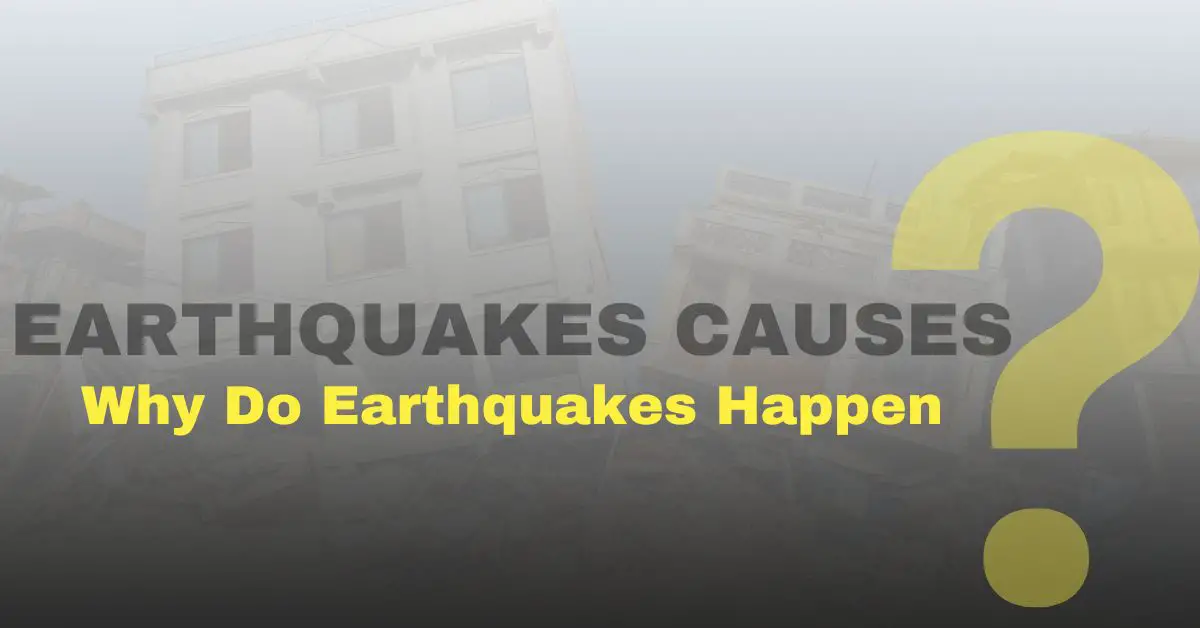Earthquakes are natural phenomena that have captured human curiosity for centuries. These powerful, sometimes devastating events occur when the Earth’s crust suddenly releases built-up stress along geological faults. But why does this happen, and what are the factors or Earthquakes causes that contribute to these seismic activities?
Understanding Earth’s Structure
- The Earth’s Crust: Imagine the Earth’s crust as a giant jigsaw puzzle made up of several pieces called tectonic plates. These plates are constantly moving, albeit very slowly, due to the heat generated from the Earth’s core.
- Tectonic Plate Movement: The movement of these plates can cause them to collide, move apart, or slide past each other. When these movements are not smooth, they can result in earthquakes.
Causes of Earthquakes
- Plate Tectonics: The primary cause of earthquakes is the movement of tectonic plates. When these plates collide, one plate may be forced beneath the other in a process known as subduction. This creates immense pressure that eventually leads to an earthquake.
- Fault Lines: Fault lines are cracks in the Earth’s crust where tectonic plates meet. When these plates move, they can get stuck at the fault line, causing stress to build up. When the stress overcomes the friction holding the plates together, an earthquake occurs.
- Volcanic Activity: Earthquakes can also be caused by volcanic activity. When a volcano erupts, the movement of magma beneath the Earth’s surface can create pressure that results in earthquakes.
- Human Activities: In some cases, human activities such as mining, reservoir-induced seismicity (due to the filling of large reservoirs), or the extraction of oil and gas can also trigger earthquakes.
Effects of Earthquakes
- Ground Shaking: The most immediate effect of an earthquake is the shaking of the ground, which can vary in intensity depending on the magnitude of the quake.
- Damage to Structures: Earthquakes can cause significant damage to buildings, bridges, and other structures, leading to injuries and loss of life.
- Tsunamis: In coastal areas, large earthquakes can trigger tsunamis, which are giant sea waves that can cause widespread destruction.
- Landslides: Earthquakes can also trigger landslides, especially in mountainous regions, which can further damage infrastructure and endanger lives.
Predicting Earthquakes
Despite advances in science and technology, predicting earthquakes remains a significant challenge. Scientists can monitor fault lines and seismic activity to provide early warnings, but predicting the exact timing and magnitude of an earthquake is still not possible.
Conclusion
In conclusion, earthquakes are natural phenomena caused by the movement of tectonic plates and other geological processes. While we cannot predict when or where they will occur, understanding the causes and effects of earthquakes can help us better prepare for these powerful events.
Also Read: Navigating Challenges: SpaceX Starship Launch Pad Damage
FAQs about Earthquakes
1. What causes an earthquake to happen?
A: Earthquakes are primarily caused by the movement of tectonic plates beneath the Earth’s surface.
2. Can earthquakes be predicted?
A: While scientists can monitor fault lines and seismic activity to provide early warnings, predicting the exact timing and magnitude of an earthquake is still not possible.
3. What are the effects of an earthquake?
A: Earthquakes can cause ground shaking, damage to structures, tsunamis, and landslides.
4. How can we stay safe during an earthquake?
A: During an earthquake, it is important to drop, cover, and hold on. Stay away from windows and seek shelter under a sturdy piece of furniture.
5. Are earthquakes more likely to occur in certain parts of the world?
A: Yes, earthquakes are more common in areas where tectonic plates meet, such as the Pacific Ring of Fire.



